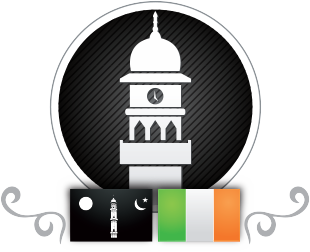For the purposes of Chandas, income is defined hereunder:
I. a. Income means all kinds of income, derived from various sources. Every Chanda-paying member shall pay her chanda at the prescribed rate in keeping with the demands of Taqwa and the verdict of her faith and conscience. House rent and miscellaneous expenses of similar nature are not to be deducted from income for the purposes of Chanda. However, travel allowances (T.A. & D.A.) paid to perform professional or official duties are exempt from being included into income. However, it is commendable, if someone pays Chanda on any savings from such allowances.
b. If a Chanda-paying member finds it difficult to pay Chanda or to pay it at the prescribed rate, she can seek full or partial remission from Hadhrat Khalifatul Masih, by submitting an application through Amir Jama‘at, stating reasons. Those who are permitted to pay Chanda at reduced rates shall remain eligible to vote in any election; but it will be essential to obtain prior permission from Markaz before appointment or election of such persons at responsible offices. This is because, an Office-bearer who lags behind in financial sacrifices may not become an example for others to follow. Note: This relaxation does not apply to Chanda Wasiyyat. In case a Musi is unable to pay Chanda at the prescribed rate she had better, get her Wasiyyat cancelled on account of extreme hardship.
c. If some definite evidence comes to the knowledge of Jama‘at about a Musi, indicating that he/she has declared his/her income wrongly and that, being a Musi such a deed on his/her part demands disciplinary action, the case of such a person shall be presented, along with relevant evidence, to Majlis Karpardaz for consideration.
Note: THE MINIMUM INCOME: A proper scrutiny of Wasiyyats requires each country to decide about the minimum income needed for subsistence in that country, so that while approving Wasiyyats this income is kept in view.
d. If Income of a family (either in the form of salary or allowance) depends on the number of the members of the family or is paid according to a fixed percentage or formula based on head of the family, his wife and children, e.g. social allowance given by the government or the allowance paid to a missionary by the Jama‘at, then the total of such salary or allowance will be deemed to be the income of the head of that family himself on which he shall pay the subscription according to the prescribed rate. However, such allowance which is paid to a child by the government for a specified purpose and the parents receive or keep that allowance merely being his guardians and the money is actually spent on that specified purpose for which the allowance is actually given, then on such an allowance father or mother are not required to pay any Chanda.
e. Professional people and Persons doing any business are to pay Chanda on their net income, which is to be determined after deducting from their gross income only such expenses as are required to generate income. It is not proper to pay Chanda only on the sums drawn from business, to meet personal monthly expenses.
f. Student scholarships/stipends will not be subject to Chanda at the prescribed rates. However students are expected to get a sum fixed after consultation with the Jama‘at and pay their Chanda accordingly.
Women not having their own source of income
a. The procedure usually followed for the payment of Chanda Wasiyyat by a woman not having her own source of Income is, that the husband should fix an appropriate amount as pocket money that would be considered the income of such a woman and she, for the sake of maintaining the continuity of her financial sacrifice, will pay Chanda Wasiyyat on her pocket money. b. Women are required to pay Chanda according to their living standard. The sacrifice made by a Musi should stand out as compared to the sacrifice made by a person paying Chanda ‘Am.

